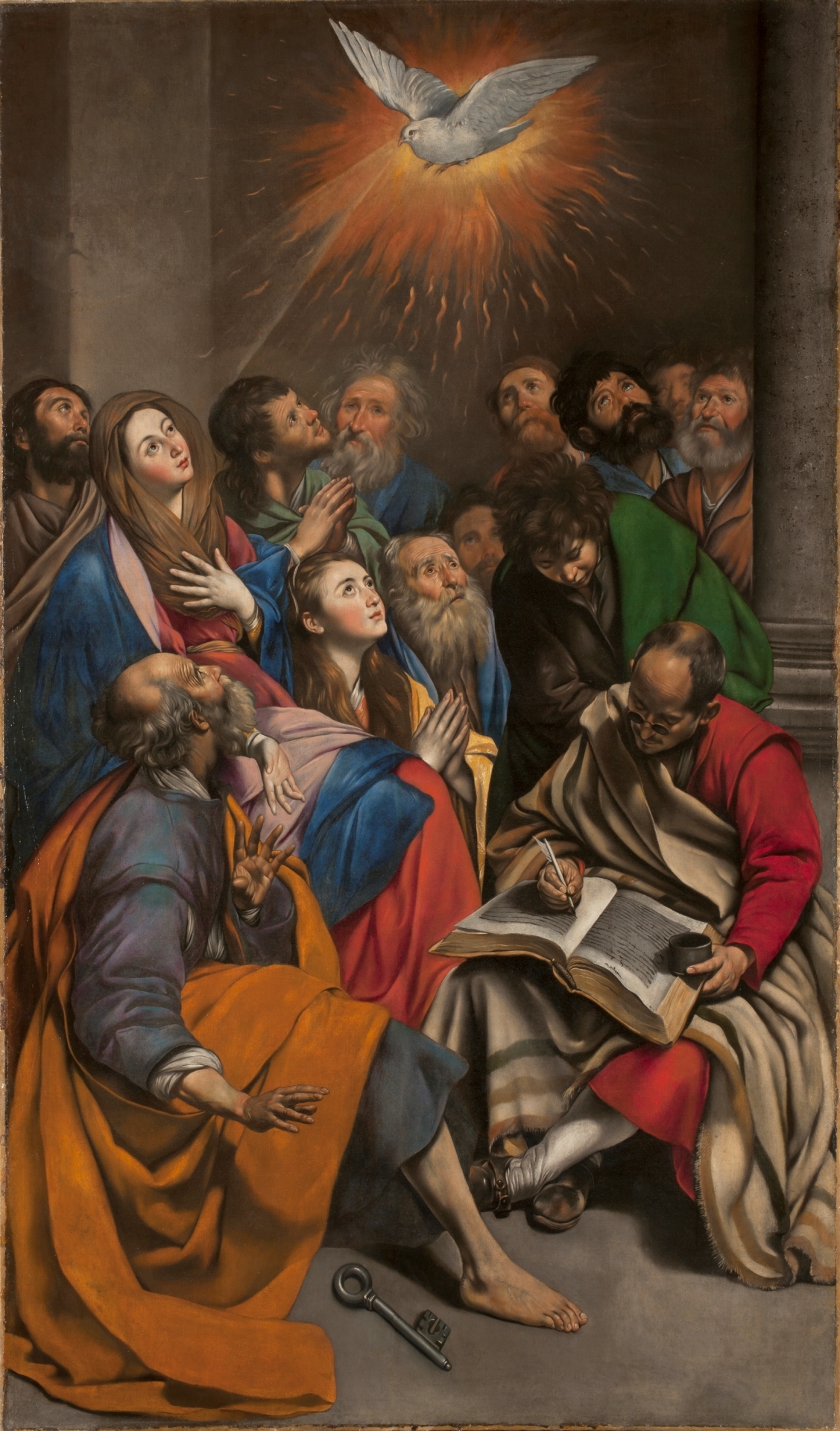
Who is the Holy Spirit?
So you think you know who the Holy Spirit is: a dove, a flame, a feeling, or nothing worth considering at all.
The Holy Spirit's apparent absence from American Christianity led Francis Chan to write the book "Forgotten God". Some will describe themselves as spirit-filled. Others will imply that the Holy Spirit has spoken directly to them - which, if true, would justify new additions to scripture. I admit I'm skeptical. Still others connect the Holy Spirit to glossolalia (speaking in tongues) and believe that spiritual languages incomprehensible to human ears are necessary to show someone's faithfulness to God. Again, I'm skeptical.
So who is the Holy Spirit?
"He [Jesus] had given commands through the Holy Spirit to the apostles. [...] He ordered them not to depart from Jerusalem, but to wait for the promise of the Father, which, he said, 'you heard from me; for John baptized with water, but you will be baptized with the Holy Spirit not many days from now.'" - Acts 1:2, 4-5
"When the day of Pentecost arrived, they were all together in one place. [...] And they were all filled with the Holy Spirit and began to speak in other tongues as the Spirit gave them utterance." - Acts 2:1, 4
Jesus gave commands to the apostles (and, I suspect, other disciples as well) through the Holy Spirit. They heard those commands and actually accepted them, taking them as joyful and life-giving, unlike before the resurrection when Jesus' commands were often forgotten or, worse, treated as a means to self-justify.
Starting on Pentecost, God not only reached the disciples with commands through the Holy Spirit, but actually baptized them in the Holy Spirit. They were not only touched by the Holy Spirit, they were actually drenched, as if having the Holy Spirit poured over their heads or being dunked into the Holy Spirit.
This changes them.
Jesus once described the work of the Spirit to a leading Bible scholar and minister of the Pharisee sect:
"The wind blows where it wishes, and you hear its sound, but you do not know where it comes from or where it goes. So it is with everyone who is born of the Spirit." - John 3:8
The Holy Spirit is spirit, invisible. Despite popular depictions (yes, even in the 17th century painting above), the Holy Spirit is not a dove. The descent of the Holy Spirit on Jesus at his baptism is described by all four gospel writers (Matthew, Mark, Luke, and John) as "like a dove", not "as a dove" or "looking like a dove", suggesting a connection to an earlier dove in scripture who showed Noah's elect family that a new hope was emerging where there was once only the ruins of a sinful world.
But the Holy Spirit, like the wind, cannot be seen. Yet its effects are known in the people it dwells in.
It has been popularly quipped that the Acts of the Apostles might be better titled the Acts of the Holy Spirit. But one doesn't preclude the other. In fact, it is precisely in the acts of the apostles, that we see the acts of the Holy Spirit. Did Peter have in himself such a clear handle on the scriptures and the gospel message? Yes. But only now that the Holy Spirit dwelt within him. Did Peter and John have the power to heal a man who had been lame from birth? No. But the faith they had to pray for and witness to God's miracle in that man's healing came from the Holy Spirit dwelling within them. Did Paul have it within himself to will up saving faith when confronted by Jesus? Absolutely not. But the Holy Spirit could fill him and inspire that faith in him.
In fact, note the word "inspire". No one's acts deserve that word more than the Holy Spirit.
The Holy Spirit is God, though the Holy Spirit is not the Father and not the Son. All three persons are one God, of one essence. The Holy Spirit is sent by Jesus and the Father after Jesus' ascent into heaven, which creates the dramatic birth of the church. But the Holy Spirit had always been at work in the world, filling people of faith to give them faith and to lead them to acts in joyful obedience to God.
So it is not too much to say that, as far as it describes the faithful actions of women and men other than Jesus, the whole Bible always has been the Acts of the Holy Spirit.
Questions to consider:
- How have you allowed the Holy Spirit to be "Forgotten God"?
- How does Jesus continue to give you commands through the Holy Spirit? (Hint: is there an inspired book that you can read?)
- What messages to you or experiences of your life, your sanctification or good works, are acts of the Holy Spirit? How can you better give the Holy Spirit credit for them?
- What does it change to know and believe that the Holy Spirit dwells in you?
- How do you receive and follow God's commands with joy and faith, rather than begrudgingly or simply not paying attention to them?
Comments
Post a Comment